Right now, I am facing a quarter-life crisis head on. I have completed more education than I ever thought I would, acquiring even a master’s degree. I am working now, and my days often seem mundane and repetitive. When you’re in school, the possibilities really seem endless. You strive to get the “perfect” job, and just enjoy being a “real-life” adult.
But, after a few months, years pass by, you start to wonder if this is all there is to life. You start to wonder if your career choice really aligns with your values. You may want to have more fulfillment, or simply to know if there’s more to life than eat, sleep, work, and repeat. This is a period of intense soul-searching and stress.
Does this sound about right? Well, if you’re experiencing a quarter-life crisis right now, you’re in good company. Research from LinkedIn found that 75% of 25-33-year-olds have experienced a quarter-life crisis, and 56% want advice to figure out what’s next but don’t know where to go for answers. This feeling is very common for folks between the ages of the mid-20s and early 30s to have, myself included.
It’s Completely Normal to Feel This Way
The typical sufferer is “highly driven and smart, but struggling because they feel they’re not achieving their potential or feeling they’re falling behind,” Nathan Gehlert, Ph.D., a Washington D.C. psychologist, told The Muse.
Maybe you graduated at the top of your class from an elite university. And, now you feel like you’re not using your degree and skills to their full potential. Or, maybe, you’re seeing your friends starting to get married and have kids, but you’re nowhere near that stage. In adulthood, there aren’t clear-and-cut stages to achieve, unlike how it was in school. The playing field isn’t quite level anymore, and sometimes you feel like you’re falling behind… in life.
Just like we all went through painful stages of puberty as adolescents, we will make it through this too. While there isn’t a clear and easy way to overcome a quarter-life crisis, there are plenty of books out there that’ll help you stop feeling so existential and find direction.
Here are 10 vetted (by me and my friends) nonfiction books that I recommend for working your way through a quarter-life crisis.
Becoming by Michelle Obama
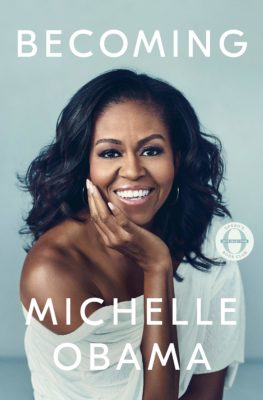
Okay, so I know Michelle Obama’s new book is what everyone is talking about, including us. But, her honesty and candidacy about her upbringing and struggles really make the book so relatable and accessible. If the extraordinary former FLOTUS had struggles and setbacks during her early adulthood and STILL crushed it at life, then there’s hope for all of us. Michelle Obama is the first FLOTUS who has written so openly and shamelessly about her life’s journey, including about her own quarter-life crisis. She is truly an inspiration for all of us.
The Defining Decade by Meg Jay

I read this book a few months ago when I had graduated from my master’s program and had no job lined up. And, it really helped me through a difficult time of my life. The book is about why your 20s is an important phrase in your adulthood, and how the time to live is now. We often think the 20s don’t really matter, and you have until your 30s to have your life together. However, what you do in your 20s really ripples into the rest of your life. In fact, it is now known as the most important period for becoming our true, authentic selves.
This Will Be My Undoing by Morgan Jerkins
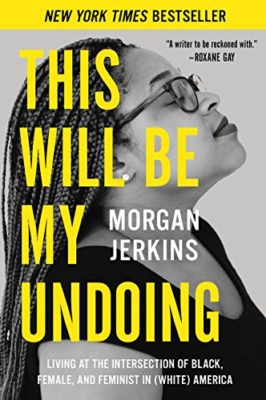
I would like to say this book is the modern-day, feminist version of James Baldwin’s books. Unfortunately, there are very few books out there that truly captures what it’s like to be a woman of color in the age of social media. Jerkin’s book is definitely one of them. Her book is a collection of her own personal essays in which she grapples with the intersection of race and gender in the predominately white America. For a woman who is just six years my senior, she is extremely introspective and articulate. I felt like Jerkins was personally speaking to me, as I resonated with her stories and insights.
MWF Seeking BFF by Rachel Bertsche
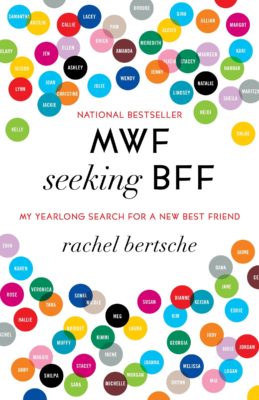
The hardest thing I’ve been finding out about adulthood is making new friends outside the context of work. Seriously, why is it so hard and awkward to make adult friends? To be honest, often times I wish there was a dating app, but for making friends. And Bertsche writes about just this! She moved to a brand new zip-code and got married. Everything seemed good, except the fact that she didn’t have friends in the new location. She writes about going on “friend dates” for a year, and the social research that examines why and how difficult is it to make friends as an adult.
Year of Yes: How to Dance It Out, Stand in the Sun and Be Your Own Person by Shonda Rhimes
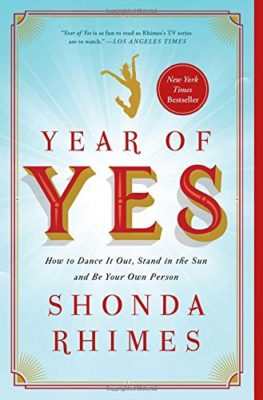
Let’s be real, why wouldn’t you read something written by Shonda Rhimes? She has blazed the trials for women of color to become TV show producers, with her four ABC shows. In her memoir, she writes about what it was like to be a mother of three, on top of having a really demanding job. It would have been easy for her to say no to any more opportunities. But, after her sister pointed out that she never says yes, Rhimes wanted to prove her wrong. This book chronicles her life after a year of saying yes to everything. During that year, she learned to explore, empower, praise, and love herself. Perhaps this book will inspire you to also have a year of yes, and get out of the rut you’re in now.
The Art of Asking by Amanda Palmer
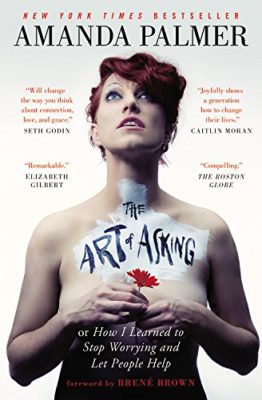
You might’ve seen Palmer’s TED Talk, with the same title. Through her journey as a live statue performer, singer, songwriter, and musician, her livelihood depended on getting help from others. Even though she is shameless about asking for help, she realizes that there are some things that she simply cannot ask for help with. In her book, she explores why it is so hard to ask for help. Her book is a story of an artist struggling with the new rules of exchange in the 21st century, both on and off the internet. It will encourage you to rethink your own ideas about asking, giving, art, and love.
Just Kids by Patti Smith
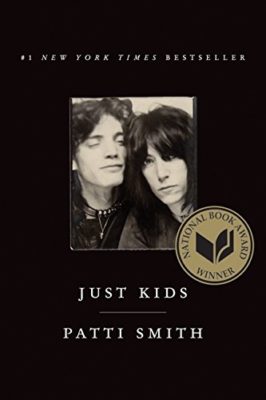
I don’t know about you, but I just love getting a glimpse of how NYC was like in the ‘60s and ‘70s. I especially like to compare how different and similar people’s lives and worries were than those of mine and my generation now. Patti Smith is a legendary American artist, whom I admire dearly. In this book, she provides an exclusive look into her coming-to-age years through stories of her youth and friendships.
The Bell Jar by Sylvia Plath
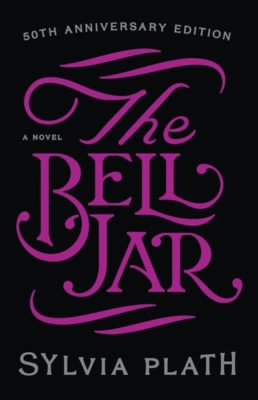
This is definitely a modern-day classic. It is believed that Plath written this as a semi-memoir, as the main character, Esther Greenwood, draws many similarities to Plath’s own life. Plath was truly ahead of her time, as she writes about her falling into the grip of insanity. Mental illness is just started to become socially acceptable to talk about just now, but Plath published this in the ‘60s. She writes greatly in detail about her honest and sometimes dark struggles with insanity. In the book, the protagonist surfaces the signs of a mental breakdown during her summer internship at an NYC magazine. This plot directly parallels Plath’s experience interning at Mademoiselle magazine.
A Field Guide to Getting Lost by Rebecca Solint
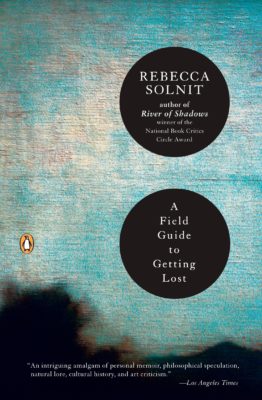
I could not believe how much I resonated with Solint’s stories in this book. The book is composed of a series of autobiographical essays which explore the themes of uncertainty, trust, loss, memory, desire, and place. She effortlessly connects her life events to larger societal occurrences, which makes her stories ever-so versatile and relatable. For me, this book seriously made me think about how I traverse through society and through the world.
The Ink of My Soul & The Fire in My Bones by Ethan DeAbreu

I might be biased with this one because Ethan is one of my mutual friends. But, he really captures that quarter-life crisis feeling in this book. I’m lucky to be Facebook friends with him, so I got an inside scoop from him:
“My book opens up as I spiral deep into a quarter life crisis. In my moment if panic of confusion I am forced to face the trauma of my past, and understand how I got this point. From there in walk with my reader through the chapters of my book, and being them within the landscapes of my mind as we face our past trauma, and anxiety of the future together. The core values of my book are: enduring hardship, learning to forgive those who hurt you, and finding ultimate purpose in life.”


